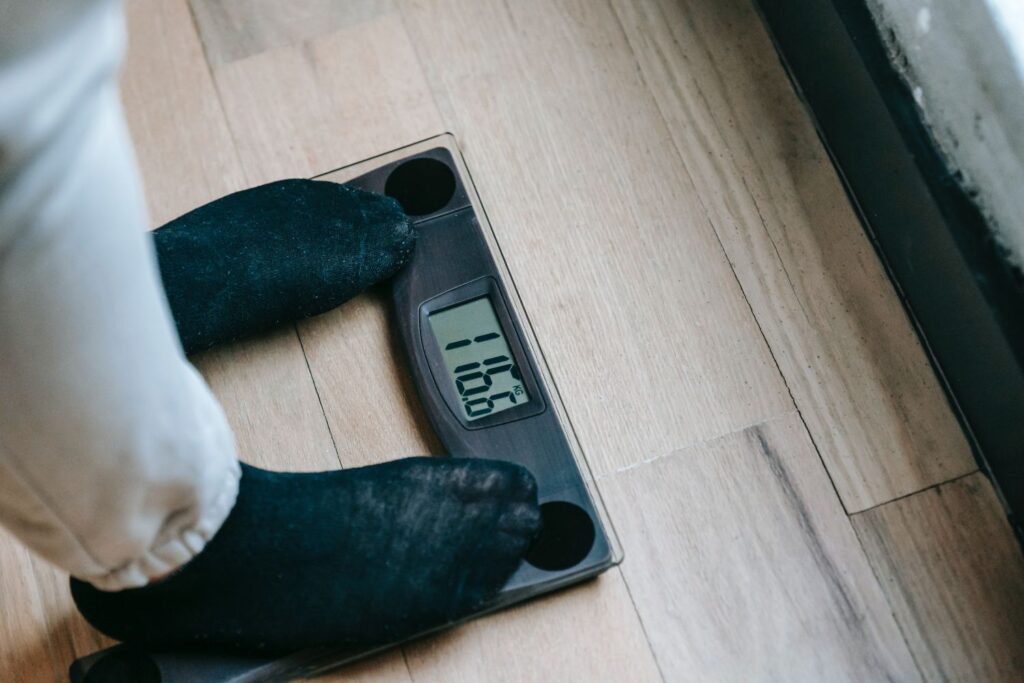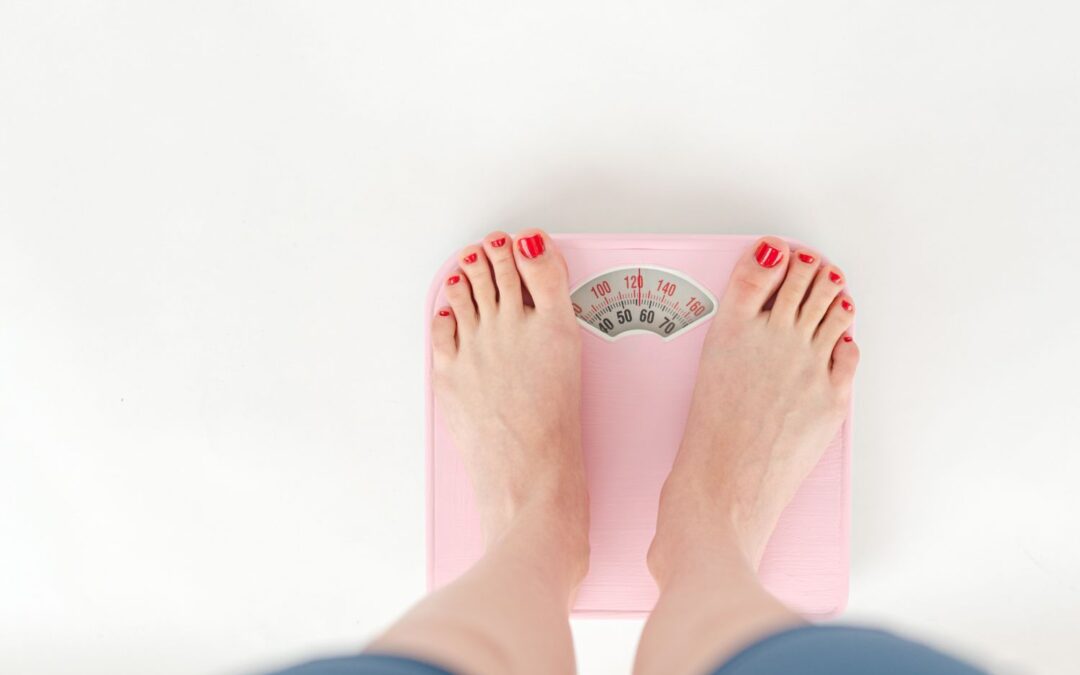Packing on some extra fluff? We get it. It’s not always about devouring that second slice of pizza or skipping spin class last week. When it comes to our weight, it’s like a reality TV show, with several subplots – metabolism, hormones, even those tiny gut critters called microbiota, all have their roles. So, here we’re about to take a deeper dive into the real drama behind your weight gain and how to put those pesky culprits in their place.
1. Metabolism And Hormonal Havoc
Think of your metabolism as that super-hyper friend who never stops moving. This buddy’s always burning calories, even when you’re relaxing watching Netflix. But, just like that friend can hit a slump, so can your metabolism, slowed by age, your gene pool, or some sneaky health issues. And then there are hormones. When levels of thyroid hormones, insulin, or sex hormones change, they can cause weight gain. You might be sweating it out at CrossFit and eating clean, but if these hormones go rogue, those pounds can still sneak up on you.
Here’s The Fix: If your hormones might be throwing your weight gain party, it’s time to chat with an endocrinologist. Depending on what’s up, you might want to explore options like an anti-aging and hormone replacement treatment to help balance things out.
2. The Calories In Disguise And Missing Nutrients
Ever gasped when you realized that your ‘healthy’ smoothie is actually a stealthy calorie grenade? Hidden calories – they’re everywhere! Also, when we munch on foods that pack a calorie punch but skimp on nutrients, our bodies start craving more food to get what they need.
Here’s The Fix: Get a reality check on what you’re really eating with a food diary or a calorie-tracking app. Opt for foods that deliver the nutrient goods – go for a rainbow of veggies, whole grains, lean proteins, and healthy fats.
3. Your Gut Feeling
Think of your gut as a teeming metropolis of bacteria. Usually, they’re a friendly bunch, helping with digestion and running things smoothly. But when these critters get out of whack, they can mess up nutrient absorption, trigger inflammation, and even help pack on pounds.
Here’s The Fix: Be the best host to your gut buddies. Foods with probiotics like yogurt and kefir are great for your gut. And prebiotics, found in foods like whole grains and bananas, are like a gourmet feast for these good bacteria.
4. Exercise Overkill
Exercise is crucial for our health, but if it’s your only game plan for weight loss without sorting out your diet, it can backfire. It’s like trying to fill a bucket with a hole in it – no matter how much water (or exercise) you pour in, if you don’t plug the hole (sort out your diet), it’s a losing battle. Besides, over-exercising can lead to injuries, hormonal imbalances, and can even disrupt your sleep, which might end up contributing to weight gain.
Here’s The Fix: Balance, my friend, balance. Make sure you’re eating a balanced diet while sticking to your exercise regimen. Don’t forget that it’s also important to allow your body time to rest and recover. Your body needs time to rebuild and strengthen itself, and rest days are an integral part of any healthy workout routine.
5. Sleep, Stress, And Scale Numbers
Ever crave junk food after a sleep-deprived night or a stress-filled day? That’s because a lack of sleep and stress can crank up cortisol levels, a hormone with a bad rep for weight gain. Plus, they can leave you feeling like you’re dragging around an anchor, making your workout feel like scaling Everest.
Here’s The Fix: Don’t skimp on your Zs – they’re not a luxury, they’re a must-have. Create a sleep-friendly haven in your bedroom and stick to a regular sleep schedule. And while you can’t totally banish stress, managing it with some zen techniques – like meditation, deep breathing, or a leisurely stroll – can do wonders.
6. Genes And Jeans Size
Our genes play a role in our body size and shape, and sure, your genes might make you more likely to gain weight. But they’re not the final word – it’s like being dealt a poker hand, how you play it is up to you. We might be predisposed to certain body types or metabolic rates because of our genes, but lifestyle changes can still significantly impact our weight.
Here’s The Fix: While you can’t rewrite your genes, you can sway your lifestyle. Try consulting with a genetic counselor who can help you decode your genetic playbook and give you advice tailored to you. They can provide insight into how your genetics might be influencing your weight and guide you in making more informed lifestyle and dietary decisions. Knowledge is power, after all!
7. The Sedentary Lifestyle Slip-Up
Modern life often means sitting for hours on end, whether we’re at work or binging the latest hot series. All this sit time reduces the calories we burn, making weight gain more likely. Besides, extended periods of sitting can also negatively affect your blood sugar levels and blood pressure, which could further contribute to weight gain. The less we move, the less chance our body has to burn off those extra calories, leading to weight accumulation over time.
Here’s The Fix: Add movement to your day. No, I’m not suggesting you start training for a marathon – just take short breaks to walk around, use a stand up desk, or do a little stretching. Every bit counts! It can be as simple as taking a walk during your lunch break, taking the stairs instead of the elevator, or even doing some desk exercises while you’re at work.

8. The Medication Menace
Some medications, like certain antidepressants, antipsychotics, and birth control pills, have a pesky side effect – weight gain. It’s like having a backseat driver on your weight loss journey, totally uninvited!
Here’s The Fix: If your meds are making you pack on pounds, chat with your doc about it. They might adjust your dosage or maybe even switch you to a different medication that won’t have the same annoying side effects.
9. Mind Matters
Emotional eating, past trauma, or eating disorders can all tip the scale. Sometimes, our relationship with food isn’t just about hunger – it can be a coping mechanism, a comfort source, or a way to regain control. These mental and emotional factors can often lead to cycles of binge eating and guilt, which further perpetuates the cycle of weight gain. Past trauma or stress might trigger these behaviors, making it harder to maintain a healthy relationship with food.
Here’s The Fix: Reach out to a mental health pro who can lend a supportive ear and guidance. Techniques like cognitive-behavioral therapy can work wonders. Remember, there’s no shame in seeking help. Talking about it and seeking professional help is the first step towards breaking the cycle and creating a healthier relationship with food and your body.
The weight game is a complex one, with so many layers to uncover and understand. But guess what? Once you’ve got the nitty-gritty down, you’re already on the right path towards a healthier and happier you. This isn’t a story about ‘winning’ or ‘losing,’ but rather about getting to know yourself better and giving your body the love and care it truly deserves.









